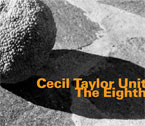Home » Jazz Articles » Album Review » Dave Liebman & Bobby Avey: Vienna Dialogues
Dave Liebman & Bobby Avey: Vienna Dialogues
Here, Liebman—who began his musical studies on classical piano at age nine—tackles the 19th Century European art song ("lied"), as exemplified by eight of its acknowledged masters. Although he is best known to American jazz buffs for his stints with Miles Davis, Chick Corea and Richie Beirach, Liebman is no stranger to either classical music or the European scene, where he has played and recorded with numerous Continental luminaries, including prestigious big bands and radio orchestras.
Nor is this format something new for Liebman. He has pursued piano/sax duets with a variety of partners for decades (including Beirach), and the title of this disc alludes to his previous duo recording, Manhattan Dialogues (Zoho, 2005), with Phil Markowitz.
In discussing the project, Liebman notes the unique challenges it presented. It is one thing, he says, to appreciate music from the Romantic and Classical repertoire, but to perform and record it is another matter altogether. Accuracy of pitch—notoriously demanding on the soprano sax with its slightly off-center overtones—is crucial, especially in chamber music settings like this one.
The first five tracks, relatively conventional interpretations of Schumann, Chopin, Mendelssohn, Brahms and Handel, give little evidence of Liebman's jazz sensibilities. The Chopin piece, "Etude in E Flat Minor," briefly flirts with stepping "outside," but for the most part the improvisations are relatively constrained. This changes significantly on the final three tracks, however.
According to Liebman, he was seduced away from his classical studies as a teenager after seeing John Coltrane at Birdland, the Village Vanguard and the Half Note. In fact, he eventually played with Elvin Jones in a quartet that also included Steve Grossman and Gene Perla (which, incidentally, I saw in Buffalo, New York as a teenager).
On the Franz Schubert medley "Tranenregen"/"Wasserflut" ("Rain of Tears"/"Water Flute"), Liebman and Avey permit themselves an improvised exploration that evokes Coltrane's atonal wails and McCoy Tyner's droning pedal tones. The next track is "Fleur des Bles" ("Cornflower") by Debussy, who is said to have been an especially significant influence on Bill Evans. Avey's solo interlude here suggests how Debussy's romanticism influenced the harmonic sense and pedal technique of Evans—and the jazz pianists who drew from him. The final cut, Gustav Mahler's "Der Einsame im Herbst" ("The Solitary One in Autumn"), moves from diatonic melancholy to quartal-voiced eruption and back again.
Liebman, who graduated from New York University with a degree in American history, asserts that the advent of harmony was "possibly the greatest contribution of the Western world to the art of music." His artistry here strongly supports that historical claim.
Track Listing
Romance Op. 94 No. 2; Etude in E Flat Minor Op. 10 No. 6; May Breezes Op. 62 No. 1 (from Song without Words); Immer Leiser Wird Mein Schlummer Op. 105 No. 2; Sonata #6; Tranenregen (from Die Schone Mullerin)/Wasserflut (from Winterreise D911); Fleur des Bles (1880); Der Einsame im Herbst (from Das Lied von der Erde).
Personnel
Dave Liebman
saxophoneDave Liebman: soprano saxophone; Bobby Avey: piano.
Album information
Title: Vienna Dialogues | Year Released: 2006 | Record Label: Zoho Music
Tags
PREVIOUS / NEXT
Support All About Jazz
 All About Jazz has been a pillar of jazz since 1995, championing it as an art form and, more importantly, supporting the musicians who make it. Our enduring commitment has made "AAJ" one of the most culturally important websites of its kind, read by hundreds of thousands of fans, musicians and industry figures every month.
All About Jazz has been a pillar of jazz since 1995, championing it as an art form and, more importantly, supporting the musicians who make it. Our enduring commitment has made "AAJ" one of the most culturally important websites of its kind, read by hundreds of thousands of fans, musicians and industry figures every month.





















